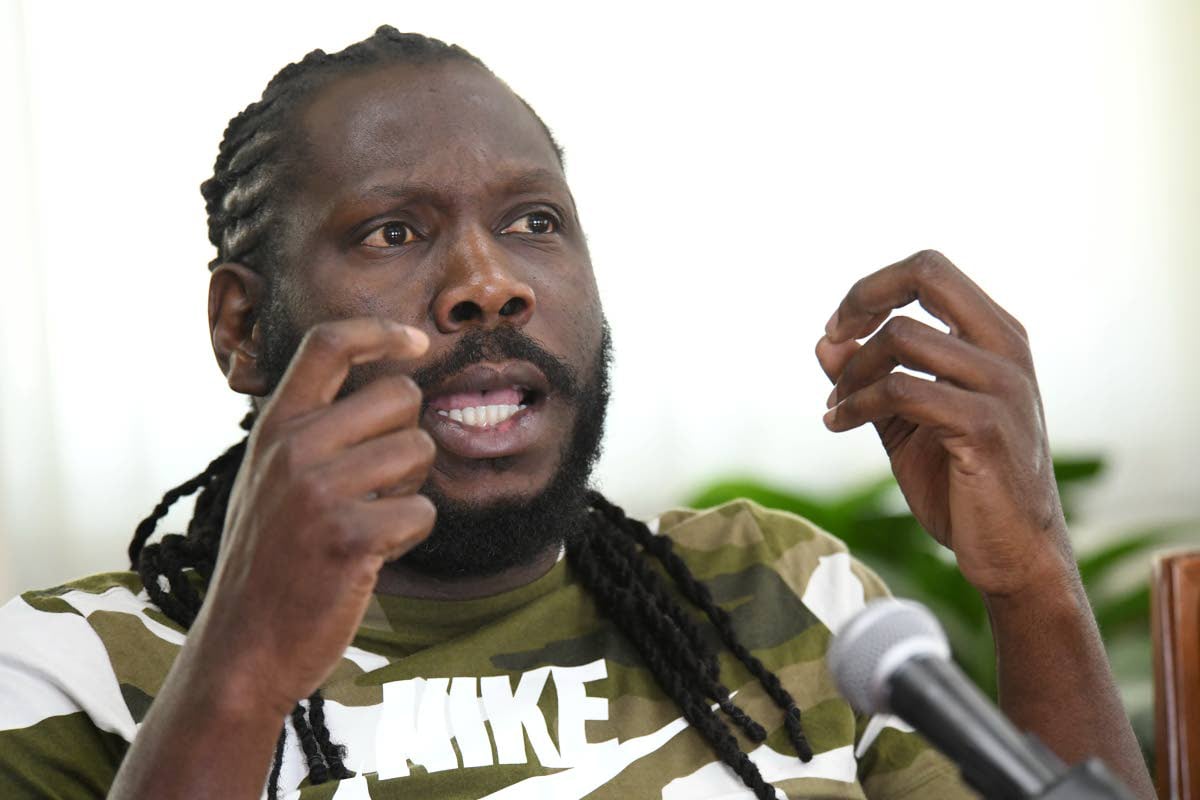Skatta Burrell Laments Reggae Music Decline In Jamaica

Coolie Dance producer Skatta Burrell has expressed dismay about Reggae music’s dwindling popularity in its homeland Jamaica.
In a recent Instagram post, Skatta lamented the absence of new artists with the same level of prowess as the genre’s legends. According to him, there has been a shift away from the traditional drum and bass, or one drop, style that characterized the music of icons such as Bob Marley.
“IS REGGAE MUSIC DEAD HERE??? Where are all the artist with the beautiful vocals? I know for sure these music are being created, however they are not celebrated nor highlighted by the masses. Drum and Bass/One Drop music, the same music Bob Marley and the Legends created is no longer the music rising to the forefront,” Skatta noted.
The Downsound producer, whilst acknowledging the successes of Reggae Revival artists and Rising Stars winners Romaine Virgo and Chris Martin, expressed concern that many members of the upcoming generation of Reggae artists continue to struggle to break through to wider audiences.
“Young aspiring reggae artist no longer getting the break, no new reggae songs hitting the local charts and creating mass movement among music lovers. Since Romaine Virgo, Chris Martin, Chronixx, Protoje and a few others, it’s like one drop music isn’t as important to the culture as it once was. We can only listen to the music that was hits from back in the day but what happens when the new generations no longer have us to play these songs as a reminder of what was?” he asked.
While Reggae continues to influence artists across the world and remains deeply rooted in Jamaican culture, many pundits have expressed concern over the last several years about its commercial viability and ability to resonate with younger audiences.
Like Skatta, during an interview with Television Jamaica’s The Entertainment Report in November last year, Inner Circle’s Ian Lewis had called for the return of drum and bass, which forms the foundation of Reggae music and which establishes its tempo, melody, and beat.
“Wi have to try enuh. Reggae without the baseline is like yuh beating out of time, to me. Suh wi have to get back to the bass and di drum. I don’t want to lose dat; whatever time God have me here, I don’t wanna lose dat. I’m going to fight hard fi can hold it up enuh,” Lewis had said.
In March 2021, Dr Sonjah Stanley Niaah Head of the Institute of Caribbean Studies at the University of the West Indies (UWI) Dr. Sonjah Stanley Niiah, had argued that Jamaican Reggae was facing an imminent threat due to the actions of its own countrymen, in both academia and the music industry itself.
Back then, she said that the country might need to undergo another Reggae Revival, as the genre was under threat of being arrogated by other countries, due to the nation’s own artistes seemingly steering clear, once again, of recording songs within the genre.
Jamaica’s Reggae Revival movement, which was deemed a breath of fresh air from the abrasiveness with which Dancehall had been grappling, began around 2010 in a bid to give life to what many had described as a dying genre, which was seemingly losing its appeal and was no longer capable of captivating the youth who were moving towards hip hop and trap music.
The Reggae Revival saw artists such as Jesse Royal, Kabaka Pyramid, Chronixx, Protoje, Iba Mahr and Jah 9, at the forefront of that style of music, which essentially infused elements of 1980s Dancehall into Roots Rock Reggae, to spread positivity as well as shed light on the social ills of Jamaican society through its lyrics.
In response to Skatta’s remarks, his compatriot Notice, noted that the problem lies in the fact that some of the traditional music gatekeepers were declining to play Reggae.
“Reggae music a mek but dem nah play it, it nah play a party and it worst nah play pon the radio,” Notnice replied.
However, the Rampin Shop producer’s statement was repudiated by disc jockey Colin “The Captain” Hines, who agreed that Skatta’s concerns had merit, but noted that while Sthe notion that reggae was not being played on radio was untrue.
“Gonna gently disagree fam … nah play on several ( or enough) radio stations is more like it. Added to this is the youthful mantra that “radio is dead” or “nobody listens radio” which fuels the false belief that the handful of quality artist who still make quality reggae, are not being supported by some stations. @skattaburrell post raises real and worrisome concerns and any movement towards a solution will require cohesion from all partners in the music community. Singer , songwriter, BEATMAKER , PRODUCER , MEDIA HOUSES & PROMOTION MACHINERY etc etc … More to say on this but TBC,” he told NotNice.
Other followers called upon NotNice and Skatta to start recording Reggae songs.
“Notnice, send on the music rasta a time fi djs and producers unite again and work as a team but yet again some man love money pull 🤦🏽♂️send me them I play them bbc when me play reggae me still get forward nuff a them don’t have no style that why them pick the easy we out ✍🏾💯,” dj_rockaz said.
Notnice was however supported by Blvk H3ro.
“Tell them again you get more love abroad as a reggae artist than home a just facts,” the It Nuh Easy artist wrote.
Some of the followers turned the heat on Skatta and told him to look at ‘the man in the mirror’.
“Skatta Burrell you’re part of the problem also because uno naa produce or buss no good reggae artist around here also , so look in the mirror that’s where it starts from too,” mintymintsjamaica said.
